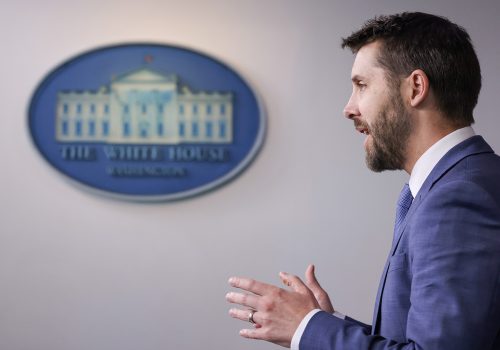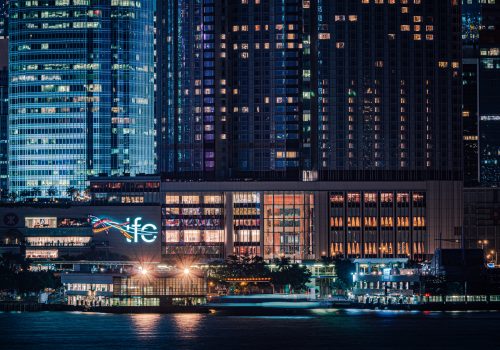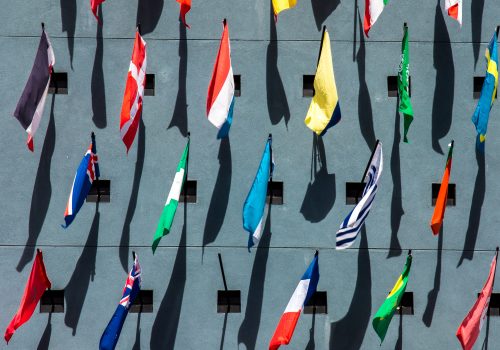As the global community continues to grapple with the coronavirus (COVID-19), the Atlantic Council is open for business. Our business, meetings, and events, however, are occurring virtually. For more information, please read an update from our President and CEO.
Event recap
This 1-hour global discussion explored new ways of addressing the COVID-19 pandemic and application of multi-sector industry solutions to current and potential future pandemics. The discussion was moderated by David Bray, PhD, with panelists Daryl Haegley, Yusuf Abdul-Qadir, Melissa Flagg, Lee McKnight, Mary Collins, Lin Wells, and Dr. Divya Chander. The panelists explored potential areas of systems, such as cyber warfare, climate change, pollution, food supplies, and how we speed up the sharing of data to address emergent issues in a timely fashion.
Our increasingly connected world requires new approaches to respond to emergent global concerns that challenge us all. Nations and industries need better more timely approaches to future outbreaks and potential additional waves of COVID-19; as well as IoT-based risks and cyber-related concerns, disruptions to supply chains and autonomous systems in cities or factories, and better monitoring for manufactured biological or chemical threats.
The old way of monitoring is insufficient in that it often required a human-in-the-loop and response and data collection associated with a challenging often happened only after the fact. A new way is needed that involves continuous efforts to increase the resilience of physical systems, cyber infrastructure, and people-centered communities in a way that respects and preserves privacy, sensitive information, and empowers people to have choice. We need ways of advancing shared solutions with distributed action and data sharing of a shared context that does not involve centralized control nor centralized data repositories.
Early examples already exist. Imagine you were trying to describe to someone in the 1920’s the importance of having smoke detectors linked to calling the fire department and automatic sprinkler systems to put out the fire.
We can do the same thing for public health resilience. We can do the same for IoT and cyber-related infrastructure. And we can do the same thing for open societies in ways that do not required centralized data collection.
Join the Atlantic Council’s GeoTech Center on 21 May from 12:30 – 1:30 pm EDT for a discussion with experts on new ways of mobilizing industry to encourage initiatives and startups to better monitor the COVID-19 pandemic (since there might be additional waves), future pandemics, and other emergent global concerns.
Speakers
Daryl Haegley
Director
Cyberspace Mission Assurance and Deterrence in the Office of the Secretary of Defense
Yusuf Abdul-Qadir
Regional Director
New York Civil Liberties Union
Adjunct Professor
School of Information Studies, Syracuse University
Melissa Flagg
Senior Fellow
Center for Security and Emerging Technology
Lee McKnight
Associate Professor
School of Information Studies, Syracuse University
Mary Collins
Assistant Professor of Environmental Studies
College of Environmental Science and Forestry, State University of New York
Lin Wells
Executive Advisor
Center for Resilient and Sustainable Communities (C-RASC), George Mason University
Board Member
People-Centered Internet
Divya Chander, MD, PhD
CEO, Founder
lucidify
CMO, Co-Founder
Plexxus
Faculty Chair in Neuroscience
Singularity University
Faculty in Medicine
Singularity University
Visiting Scholar
Stanford University
Moderated by
Dr. David Bray
Director, GeoTech Center
Atlantic Council


